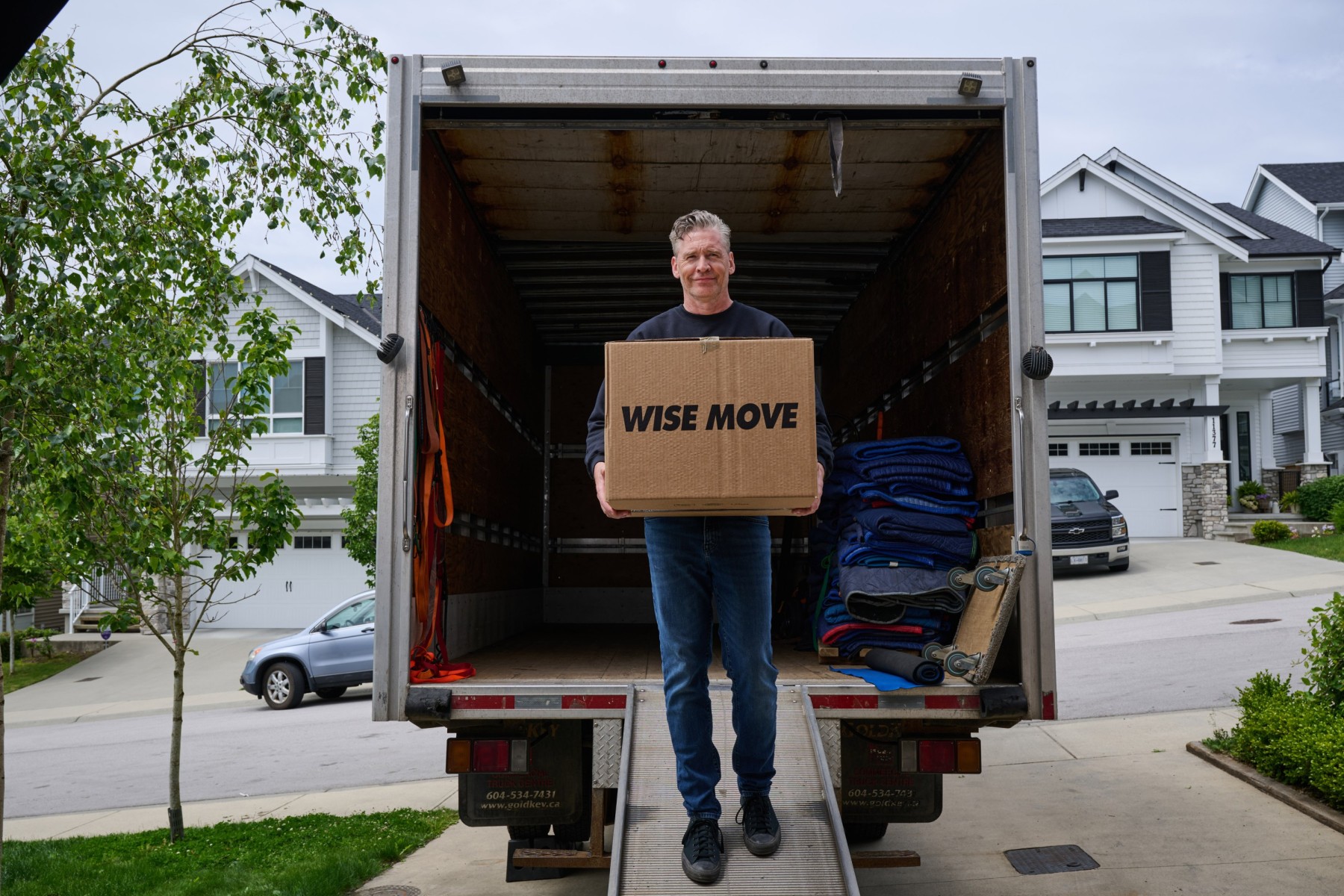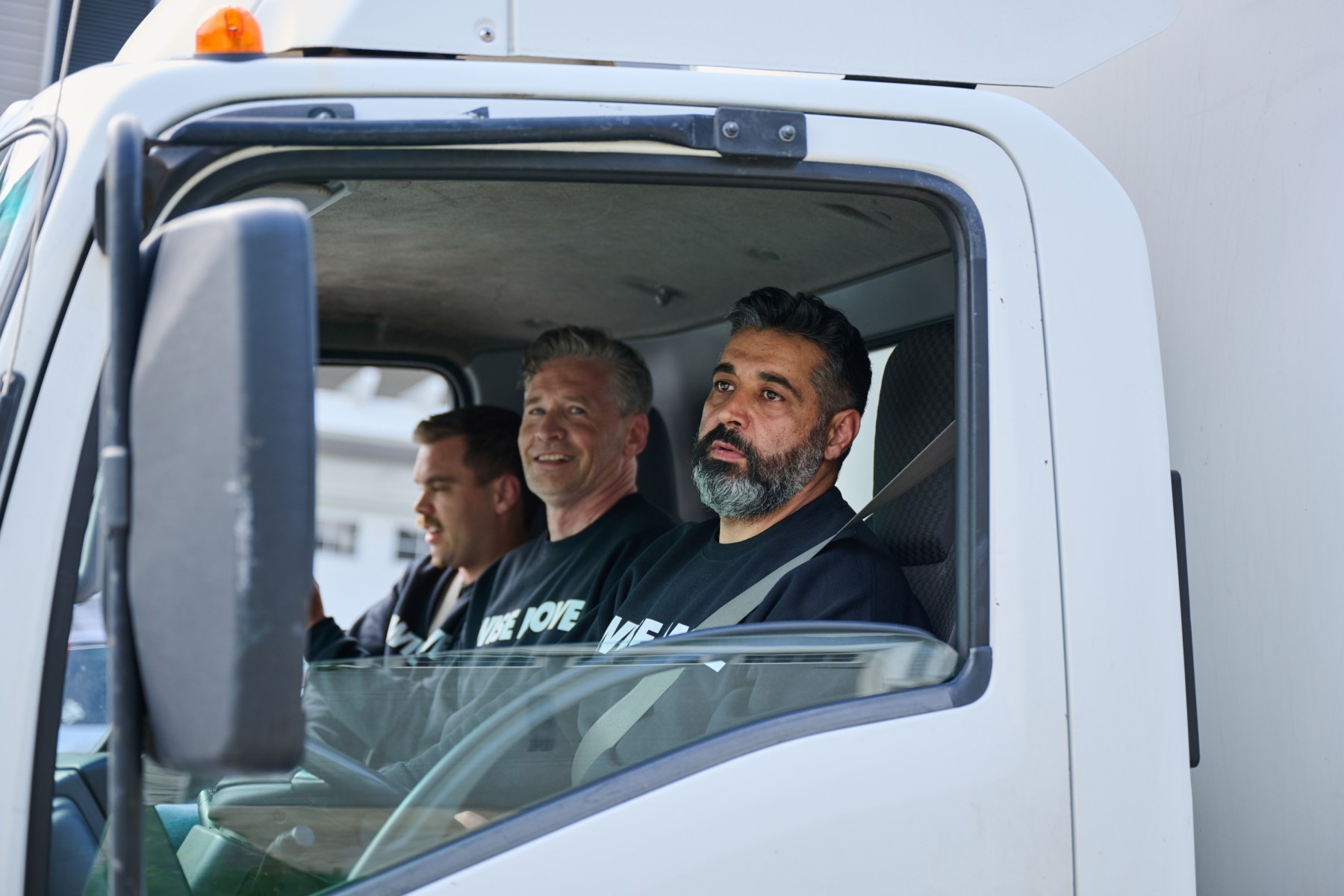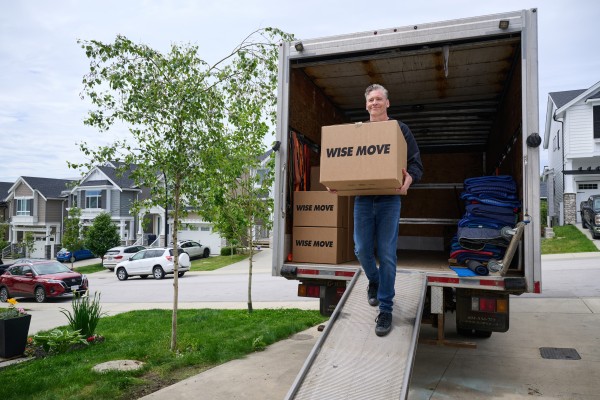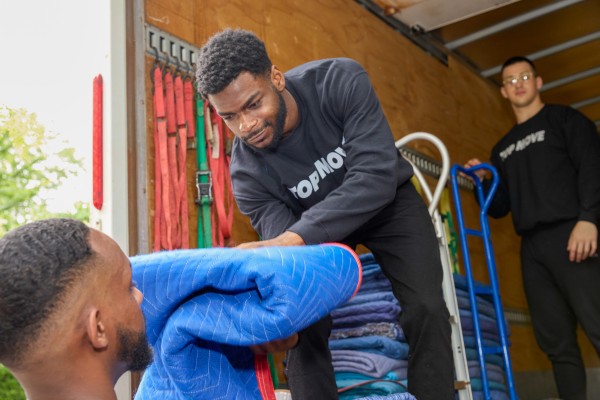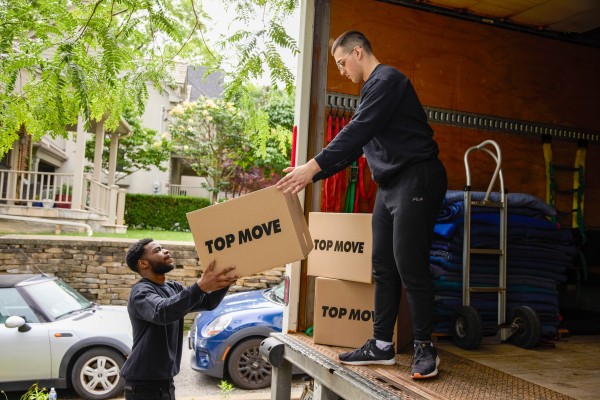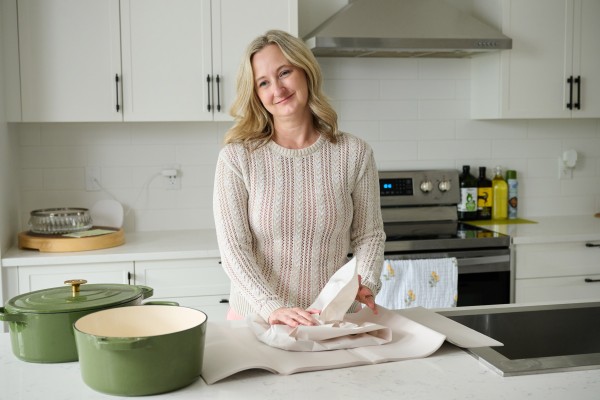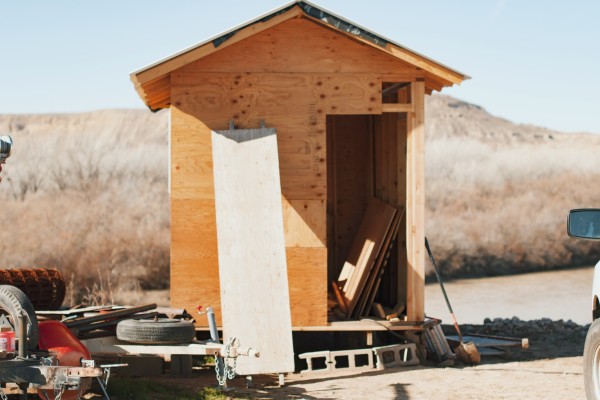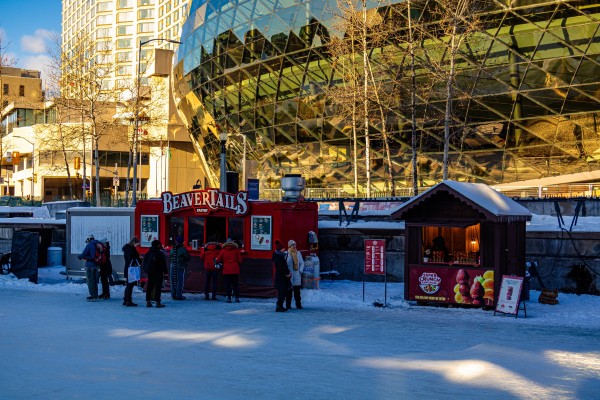A practical guide for families to help seniors move comfortably in Canada

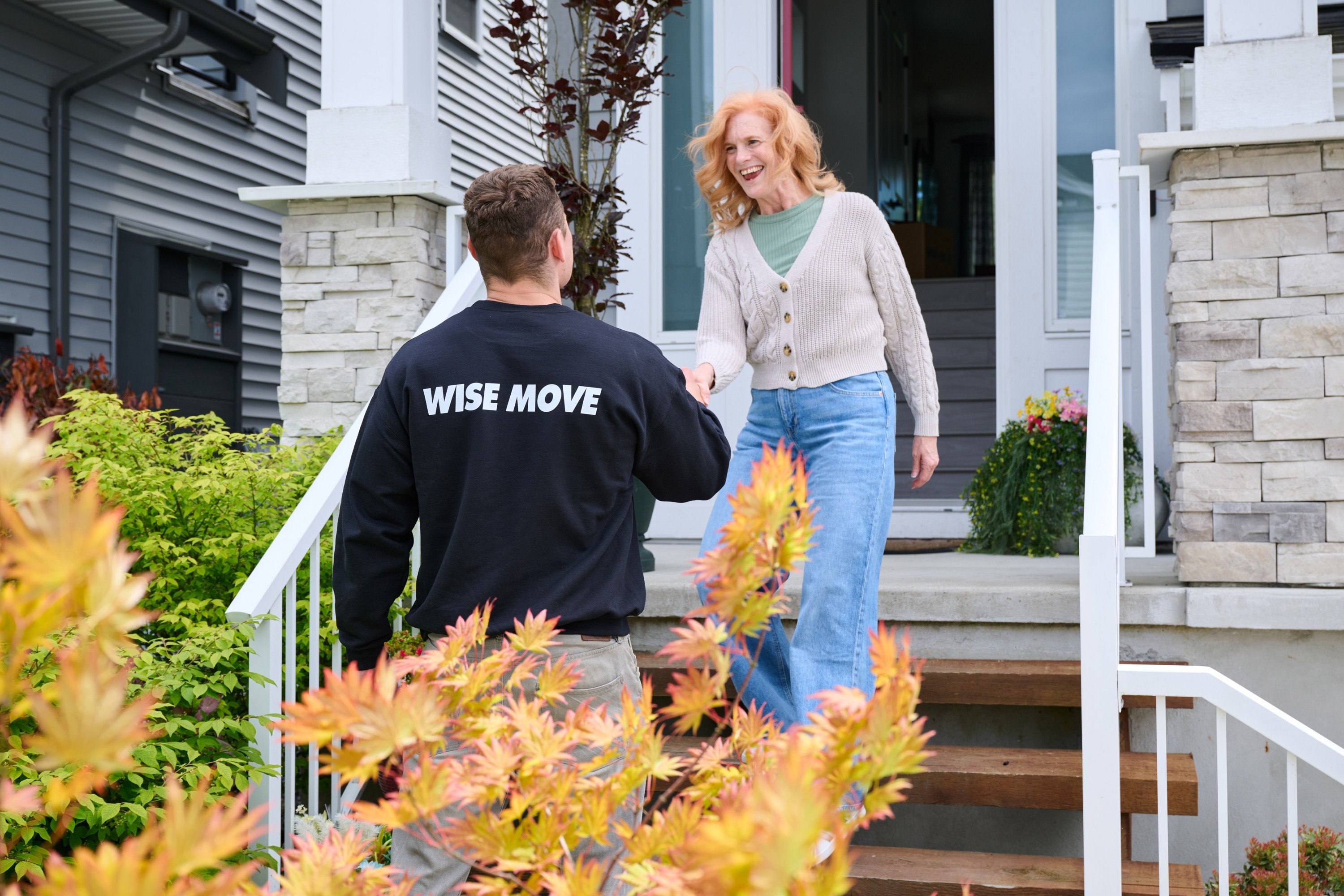
Moving is one of life’s significant experiences. It can be overwhelming at any stage of life. For seniors, it requires more than just boxes and a truck. It brings with it unique emotional, physical, and logistical challenges
This guide is here to help you move with, not just for, your ageing parent or loved one, ensuring the process is as smooth, safe, and stress-free as possible.
Why moving is hard for seniors (and how to help)
Older adults may be facing a whole mix of emotions as they face the next chapter and relocation process. This could be the result of a variety of different reasons:
- Loss of independence.
- Chronic health conditions.
- Fatigue or mobility limitations.
- Grief from leaving a long-time home.
- Anxiety about unfamiliar surroundings.
They may also need specific accessibility features in their new home that younger movers wouldn’t typically consider. These are just a few of the many considerations to take into account when helping a senior move homes.
Luckily, with proper, compassionate planning and the right support measures, the transition can be smooth and positive for everyone involved.
Senior moving checklist (start planning early)
As soon as the decision to move has been made, start the conversation early and build a realistic moving timeline. This gives seniors time to mentally and emotionally prepare for the move and to feel included in every step.
Use this checklist to stay on track:
- Start the conversation early and include them in all decision-making around the relocation.
- Discuss living arrangement options. This could be downsizing into a smaller home, moving in with family, assisted living, or retirement communities. Discover our guide on the best small islands for retirement in Canada
- Visit potential new homes for accessibility (ramps, grab bars, step-free entries).
- Sort and downsize belongings room by room.
- Choose a reputable mover with senior relocation experience.
- Notify doctors, pharmacies, and utility providers.
- Update address with Medicare, insurance providers, banks, and pension offices.
- Pack a clearly labelled “essentials” bag.
- Arrange emotional support and regular post-move contact.
Things to consider when helping seniors move
Physical considerations
Mobility often becomes more difficult with age. Your senior family member may have mobility limitations. As a result, they'll need a cane, walker, or wheelchair to navigate tight hallways or stairs during the move.
Some seniors cope with debilitating health conditions that leave them in pain all the time or even immobilised. Others may have lower energy levels, meaning they'll have trouble lifting, bending, or standing for long periods.
Tips to help ease mobility challenges
- Break moving days into short time blocks.
- Use furniture sliders and assistive tools.
- Consider hiring a senior move manager (NASMM-certified).
- Prioritise safety modifications in the new home (non-slip floors, ramps, grab bars).
Emotional challenges and how to ease them
Home is where the heart is. Your senior family member may have spent several years or decades in the home they are leaving. Memories were formed, significant milestones achieved, and sentimental feelings grew. Perhaps the last memories they have of a late spouse took place in this home.
This can create attachments and even bring up waves of grief as moving day approaches. This especially happens during downsizing and sorting precious belongings that hold sentimental value.
Change also becomes harder as we age and become comfortable in the safety of routines and predictability. A big change, such as a move, can bring up feelings of apprehension, overwhelm, and even fear.
Ways to support emotional well-being
- Talk about the move early and often
- Create a memory book of the old home
- Digitise old photos
- Let them reminisce and share stories
- Give control over what to keep, gift, or donate
Social considerations
For seniors moving to a different town or city, they may be leaving behind a social network that took years or decades to establish. The emotional toll of leaving behind familiar neighbours, local shops, and social groups can be heavy.
Many seniors find fulfilment in group activities such as crafting circles, gentle sports, seniors' fitness groups, or clubs. The thought of leaving behind friends and having to join new groups can be overwhelming, sad, and feel like they’re starting over from scratch.
How to help them adjust socially
- Research senior-friendly activities before the move.
- Help them join local Facebook groups or community bulletin boards.
- Plan a farewell gathering with neighbours or friends.
- Arrange for video calls with old friends after the move.
Helping seniors downsize and declutter: A room-by-room approach
A long life full of family and hobbies can result in the gathering of many material possessions. As you start to make preparations for the move, remember that older people need to pace themselves. Go slow. You don’t want to overexert or exhaust them.
When dealing with material possessions, downsizing and packing, start with one room at a time.
Use the 4-pile method
Create a simple sorting system by picking up one item at a time and placing it in one of four piles:
- Keep
- Donate
- Gift
- Recycle
Decluttering tips
- Start with the easy, non-sentimental areas (like the laundry room or pantry). Build up momentum before tackling photos and memorabilia.
- Take extra care with sentimental items. You can even digitise photos, make scrapbooks, or create themed memory boxes for them to keep.
- Most importantly, this is the time to practice patience and compassion. This part of the process may move slowly as emotions arise, and there may be emotional attachments to physical belongings. Patience is imperative as you support seniors through this part of the process.
Ensuring safety and comfort on moving day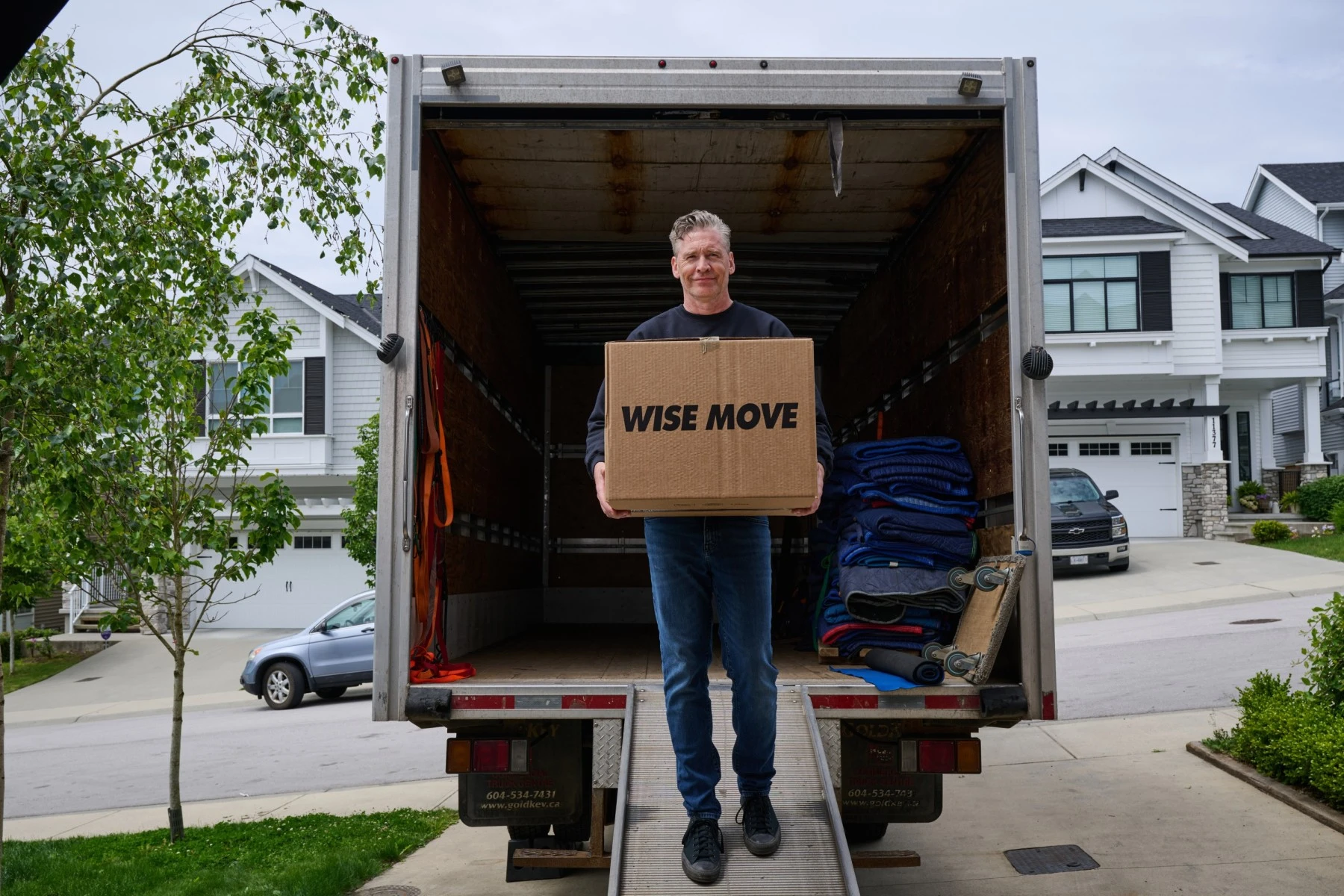
Book the right movers for the job
When moving with seniors, every decision should prioritise safety, support, and comfort. That starts with choosing a reputable moving company that has experience with senior relocations. These moving professionals often offer packing services, staging help, and unpacking support.
With Wise Move, you can submit your request along with any special moving requirements and an inventory list. You’ll then receive quotes from vetted movers in your area. Compare prices, insurance coverage, and reviews, and check each mover’s profile for proven experience in senior relocations. This way, you’ll have all the information you need to make a confident choice and hire the best team to move with your senior loved one.
Be prepared with the essentials
Before the move, pack an essentials bag with:
- Medications
- Important documents.
- A change of clothes, both for daytime and nighttime.
- Any comfort items such as favourite books or knitting supplies, etc.
- Pet supplies if needed - food, toys, water bowl, medications, etc.
Ensure the new home is accessible
Visit the new home well ahead of time to make sure proper accessibility measures are in place.
These include:
- Ramps and lifts for mobility devices.
- Wider doorways.
- Step-free entrances.
- Automatic doors.
- Grab bars and railings in appropriate areas.
- Lowered countertops and sinks.
- Non-slip flooring in kitchens and bathrooms.
Helping seniors settle into their new home
Start with the essentials
As you arrive at the new home and begin the unpacking process, prioritise unpacking the following:
- Bedroom (bed, comfort items, lighting)
- Bathroom (safety items, toiletries)
- Kitchen (essential cookware, snacks, familiar tools)
This will allow seniors to become familiar with their new surroundings immediately.
Layer in meaning
Once the basics are in place, take time to hang special photographs of family and unpack sentimental items. This will help make the space feel like home right away.
Build a new routine
- Establish new daily patterns quickly, such as:
- Morning walks to promote stability, comfort and predictability.
- Explore the area together, taking note of amenities and community spaces nearby.
- Look out for bulletin boards and local papers that may advertise senior-friendly activities and group events.
Supporting the elderly family after a move
Emotional support during the big transition of moving houses is perhaps the most valuable thing you can offer a senior, who may be experiencing feelings of loss or anxiety.
- Schedule weekly calls to reminisce together and share stories.
- Plan future visits to familiar places and help them to maintain contact with neighbourhood friends.
- Arrange transportation to social outings.
- Help find a local therapist or counsellor if needed.
- Encourage journaling or creative hobbies.
- Celebrate milestones in the new space (first dinner party, birthday, etc.).
Make it a smart move for seniors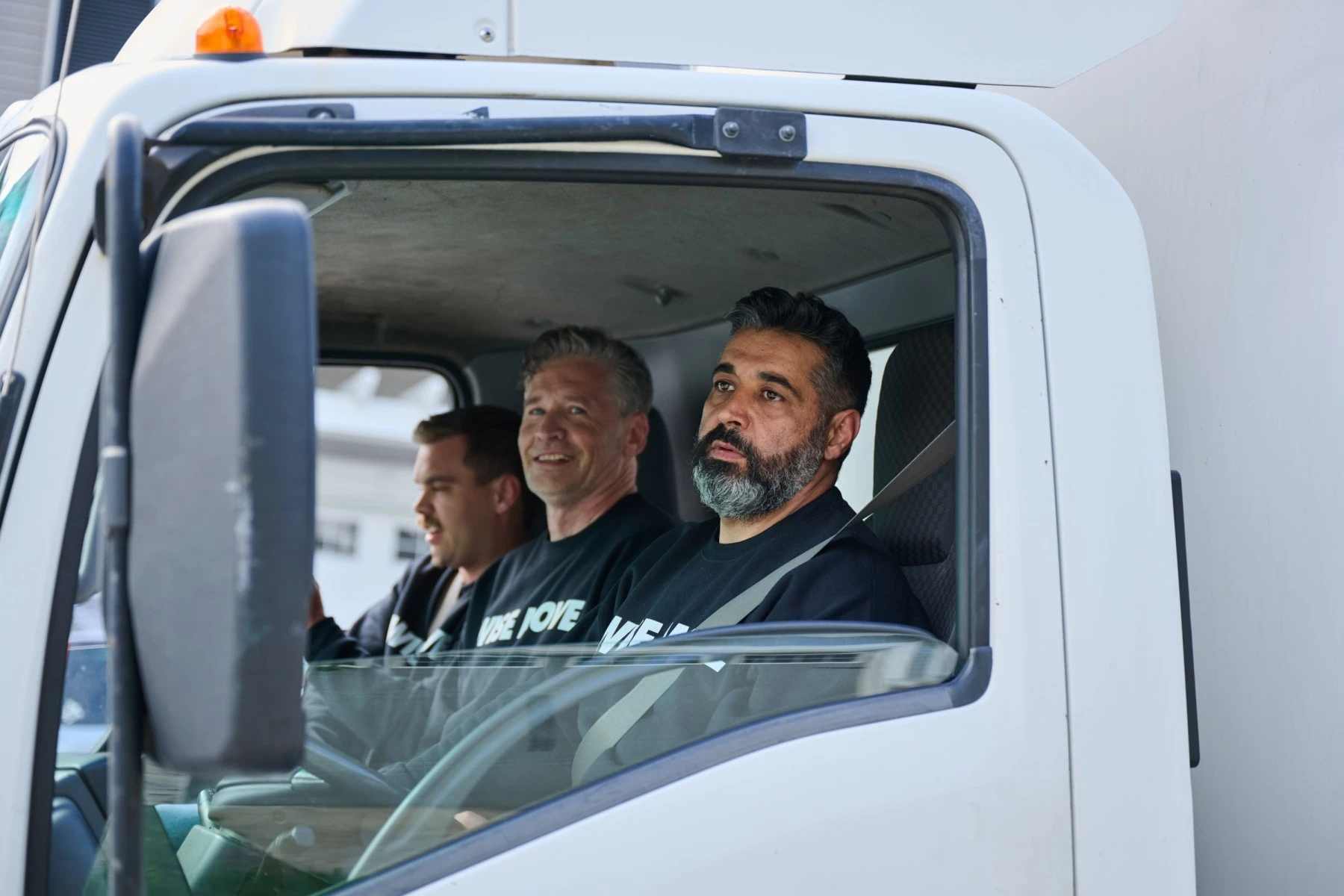
Overall, moving homes can lead to new opportunities and an improved quality of life for seniors. Even though the change can feel like too much at first, it may bring a fresh perspective, new activities and friends, and healthier routines. Taken one step at a time, a smooth and stress-free move is possible with seniors, and staying positive is the secret.
Choose a trusted Canadian moving company experienced in senior relocations, so you can focus on what really matters—supporting your loved one.
What do our customers say?




